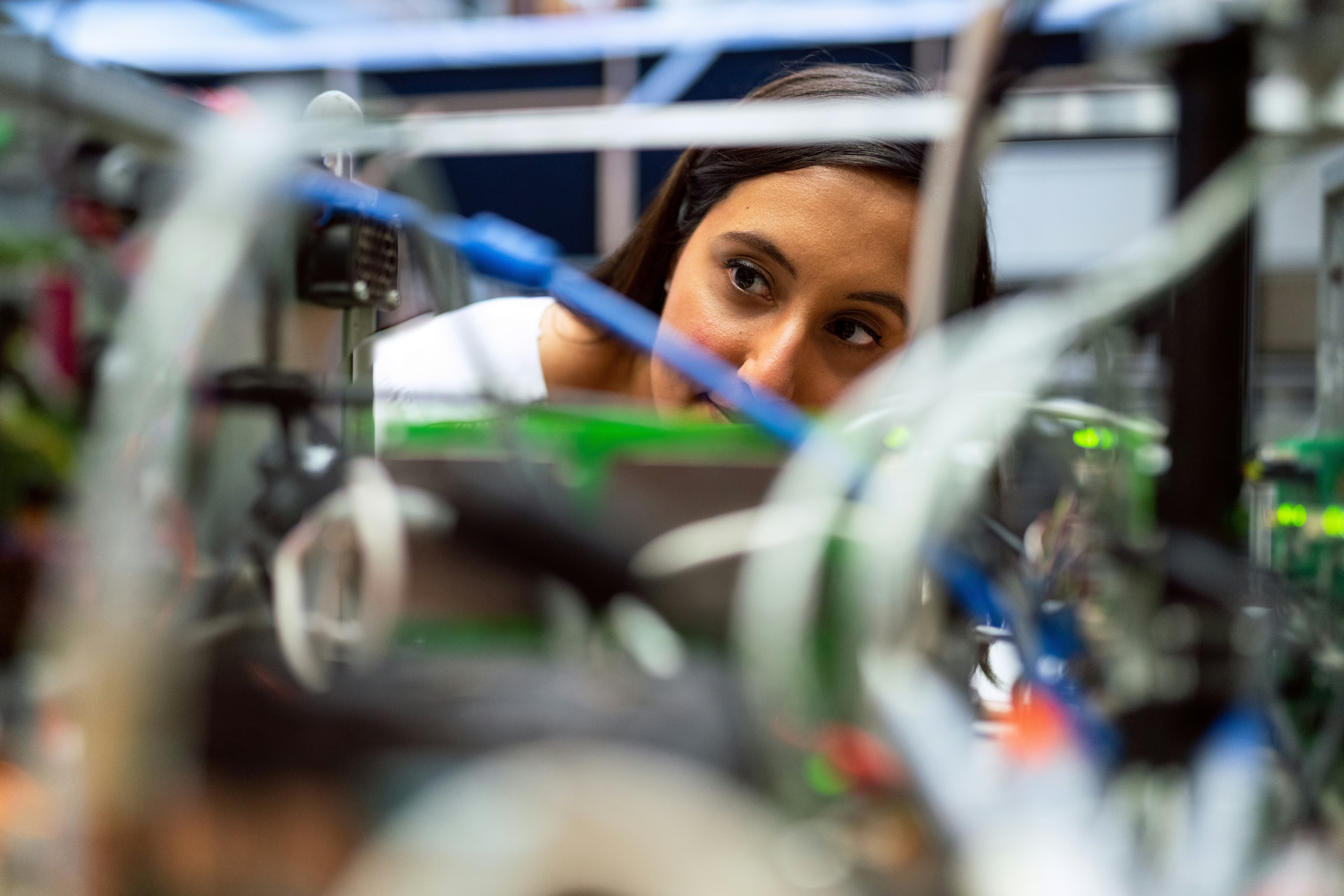In contrast to rising political nationalism and deglobalization, start-up founders are acting as modern-day internationalists.
Start-ups today are going global earlier than ever, even at the pre-seed or seed stage.
AI is reshaping global business by enabling seamless multilingual collaboration, unlocking distributed talent and helping start-ups bypass traditional, slower adoption.
세계경제포럼, 2025년 7월 14일 게시
Danny Rimer
Partner, Index Ventures

In the 16th and 17th centuries, religious conflicts ravaged Europe. Yet as rulers struggled to seize territory and centralize power, a parallel story was unfolding through commerce.
The Medicis of Florence financed trade throughout Europe and the Middle East while navigating the fractious politics of Italian city-states. Dutch merchants maintained trade with their sworn enemy, Spain, through neutral intermediaries.
The trading houses from London to Antwerp devised financial innovations, including letters of credit, maritime insurance and joint-stock companies, to manage risk and pool capital across borders.
Today, once again, Western democracies are building walls and retreating within their borders. And once again, entrepreneurs are stepping up as the true internationalists of their age.
Founders are quietly re-stitching the world by creating jobs and building prosperity. The geopolitical volatility of the past decade could have signalled a retreat from global ambition but the reality is exactly the opposite.
“AI is creating a unique inflexion point where European businesses can bypass legacy systems and move directly to AI-native solutions”
When international travel halted during the pandemic, remote work and digital commerce accelerated; founders didn’t pull back but instead discovered new ways to continue expanding.
Internationalization is both accelerating and becoming democratized. There are more routes to achieving global scale and to getting there fast than ever before, which means that more and more start-ups are born global.
When Nik Storonsky founded Revolut in 2015, he didn’t set out to build a British banking app; he aimed to create a global financial platform that would enable millions of people to manage their finances and enjoy fee-free spending worldwide. Today, Revolut operates in over 35 countries and has over 50 million users.
Global by design
When I speak with founders, many describe hiring from dozens of nationalities and selling into multiple countries. In their world, borders are anachronisms and talent comes from everywhere. Remote and distributed work amplifies this mindset.
As Ami Luttwak, the founder of the cybersecurity super-unicorn Wiz, says: “When we say global, we mean agile.”
The fastest-growing company in the history of B2B software, the Wiz team never thought about expansion as growing from one country to another; rather, the game involved engaging with the most sophisticated customers, regardless of their location.
This philosophy helped the team hit $100 million in annual recurring revenue in just 18 months and eventually secure a $32 billion acquisition offer from Google.

The new internationalists: founders of companies who were born globalImage: Index Ventures
Start-ups from Israel and similarly small countries have no choice but to expand early, since their domestic market is too limited. Ilkka Paananen, co-founder and CEO of Supercell, observes that coming from Finland forced him to “think global from day one” – and within a few years of its founding, Supercell became Europe’s first tech start-up to surpass a $10 billion valuation.
What’s new today, though, is that even start-ups from large markets are internationalizing faster. According to our research, European start-ups are now expanding to the US earlier than ever – 64% expand at pre-seed or seed stage, compared to just 33% in the 2015-2019 period.
Going global still calls for thoughtful timing. If you’re inadequately strategic or mature, expanding too early puts you at risk of repeating the same mistake in multiple places simultaneously.
International expansion can also become a “shiny object” that distracts a company from the hard work of achieving product-market fit and operational excellence closer to home.
Building a solid local foundation and establishing tested playbooks to export abroad is still a valid approach for many businesses. The point is that they’re doing so faster and with more options available to them than at any point in history.
It’s not just that a global footprint is more achievable now. Increasingly, it’s expected. One study found that non-US start-ups targeting global markets first had a double the scale-up rate of those that remained domestic.
“…today’s founders are building bridges that transcend political divisions.”
Borderless start-ups
Even B2B start-ups in niche sectors are finding their first dozen customers across multiple countries, as they can reach them remotely via LinkedIn, online communities or distributor partnerships.
Artificial intelligence (AI) is supercharging this trend. For one, it’s rewriting the rules of distributed talent. AI development requires diverse expertise that no single location can provide, which means founders must tap into global talent pools to compete.
AI is also helping start-ups take the next step in seamless multilingual collaboration, with companies such as DeepL, the AI translation platform from Germany, enabling teams to communicate across language barriers with unprecedented accuracy.
In the future, this won’t just be between humans but will likely encompass AI agents too.
Perhaps even more significantly, AI offers European companies a chance to leapfrog the traditional software acquisition model. Historically, European enterprises have been slower to adopt new technologies, typically looking to the United States for innovation and implementing systems years after they’ve been proven across the Atlantic.
Have you read?
- Why we need to build support systems for founders everywhere
- 3 start-up founders on the need and opportunities for investing in water innovation
- Future of technology: Start-up founders on how to innovate for a better tomorrow
However, AI is creating a unique inflexion point where European businesses can bypass legacy systems and move directly to AI-native solutions, potentially closing the technology adoption gap.
Like the merchants of Renaissance Europe who maintained trade networks even as nations went to battle, today’s founders are building bridges that transcend political divisions.
This surprisingly resilient trend toward greater connection, even in the face of the rhetoric of deglobalization, represents one of the most powerful and optimistic forces in the global economy today.
It’s a creative, grassroots globalism – driven not by large corporations but by start-ups, weaving together the economic and cultural fabric for a more connected world.

